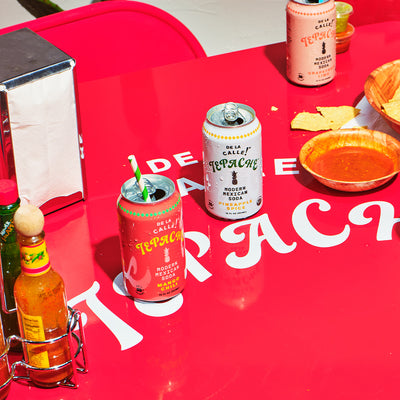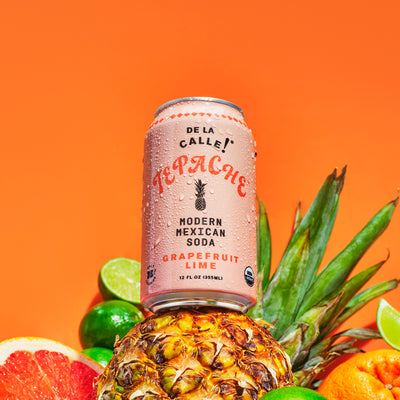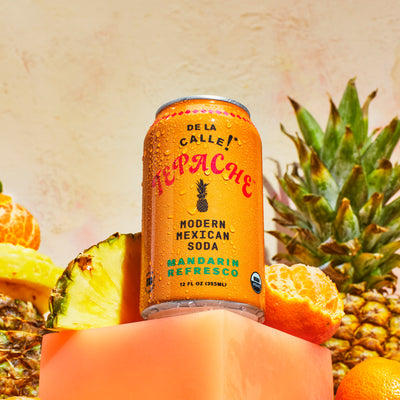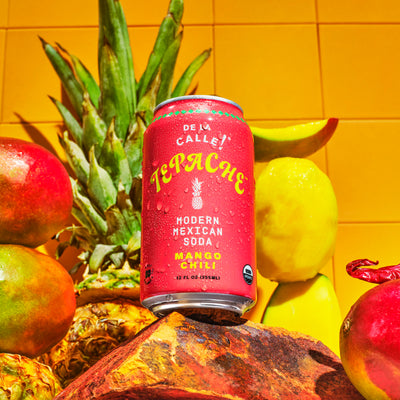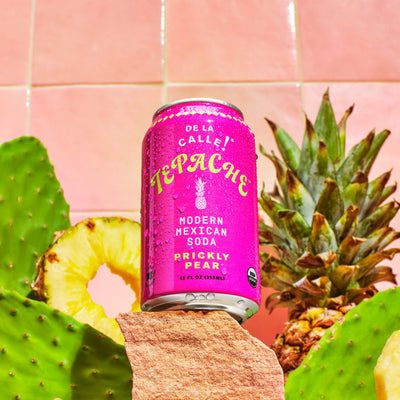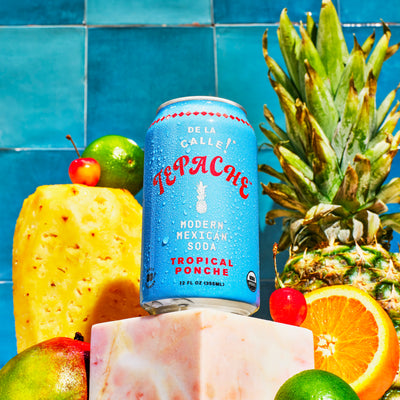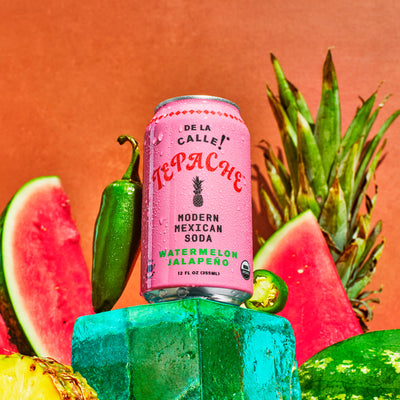The History of Chili Peppers in Mexican Cuisine

Mexican cuisine is full of rich flavors and exciting spice combinations. The dishes are as colorful and inspiring as Mexican culture itself. A major staple in Mexican cuisine is, of course, the famed chili pepper.
This powerful pepper is in just about every dish you can imagine. Here at De La Calle, we appreciate and take major cues from the various uses for the chili pepper. Modern, inventive flavor combinations, as well as tried and true traditional Mexican meals, often center the chili pepper.
We gave a nod to the chili pepper in our Picante Mango Chili tepache! But just why is the chili pepper so beloved in Mexican flavors and foodie favorites?
There are many reasons beyond the fantastic taste and fun kick of the chili pepper that explain why this fantastic fruit (yep, it is a fruit) is such a star!
Before we get historical, what exactly is a chili pepper? Read on to get the low down on all things chili pepper and see why we’re so in love with the potent pepper!
What Is a Chili Pepper?
Chili peppers are an entire group of peppers. They include many of the different peppers you likely already know and love.
Chili peppers include varying spice levels too. They range from mega hot to a gentle kick.
Some commonly used chili peppers include:
- Habanero
- Jalapeno
- Cayenne
- Thai Chili Peppers
- Serrano
- The Ghost Chili
- The California Reaper
- Bhut Jolokia
These peppers all bring a unique flair to the dishes and drinks they grace. They also are the contributing ingredient to many of the spices that season Mexican dishes.
You can enjoy chili peppers in many different ways. They can be eaten freshly washed, dried, pickled, or dehydrated. The spices and flavors they help create include:
- Barbecue flavoring
- Chili powder
- Hot sauce
- Hot curry powders
The History of the Chili Pepper in Mexico
The chili pepper found its home in Mexican cuisine as a result of several historical happenings. Chili peppers have long been used in Mexico. The first evidence of the use of chili peppers dates all the way back to 6900-5000 years B.C.
Native tribes in Mexico had domesticated and utilized the powers of the chili pepper long before they spread throughout the old world. Chili peppers were used not only as food but also for medicinal purposes and in rituals and ceremonies.
The chili dug its earliest roots in the Mesoamerican Tehuacan Valley. Even the word itself is a product of the Aztec language. It evolved from the Nahuatl language, an Aztec dialect that remains the basis for many modern words.
Chili peppers not only survived through the Spanish conquest of the Americas, but they also made their way back to the old world to be incorporated into cuisine. The Spanish recognized their versatility and included chilis in much of their food and drink.
Chili peppers came onto the scene in other parts of the world after the Columbian Exchange. Before this transmission of ideas, foods, and culture, they were uniquely Mexican.
Chili peppers can grow in warm climates all around the world, with some being hardier than others. Chili peppers are still grown in great numbers across Mexico and much of Latin America. Now, however, the majority of chili peppers are currently produced in China.
What Dishes Include Chili Peppers?
There are so many ways to include chili pepper in your dish. You can eat them solo or pair them with complementary flavors to create combinations that will have your mouth watering—and not just from the heat.
A classic, simple way to use chili peppers is to include them in salsa or guacamole. You can also make a wonderful beef or bean chili. You can customize the kick from a little heat to maximum spice levels to create the perfect cozy chili for you.
Chili peppers are also delicious when blistered and eaten plain. If you’re looking to go on the sweeter side, an underrated and magnificent chili concoction is chili jam. This option lets the spice shine and calms the senses with the sweetness of a jam.
Why Add Chili Peppers?
Chili peppers aren’t just a pretty face. Sure, they add color and kick into whatever dish you wish, but that isn’t all they can do for you. The chili pepper not only works with you but for you too.
Chili peppers contain vitamin C, vitamin B6, vitamin A, and vitamin K. They also contain manganese, folate, and fiber. Chili peppers are versatile nutrient-dense champions.
Plus, adding a chili pepper into a dish or drink ups the aesthetic value of the cuisine. Even though looks are not everything, the pop of color that comes when a dish is garnished with a fire engine red chili pepper is all part of a fantastic dining experience.
Part of the fun of trying out new recipes and flavors is a glimpse into the world they came from. Chili peppers are so versatile and complementary to different tastes. This makes them a fantastic way to ease into your era of culinary exploration.
Another pleasure of testing out new foods is testing out new food presentations. Have you ever garnished your margarita with chili pepper? Or perhaps you could do a chili powder and sugar rim around the glass. The options are limitless so long as you have fun with them.
Chili Peppers + Mexican Cuisine = The Perfect Pair
Chili peppers are a major Latin American export and have been for many years. They are not only representative of the tastes, smells, and textures of the country. They represent the deep reverence for tradition that is so integral to Mexican culture.
No matter how you choose to add chili peppers into your food or drink, do it joyfully. Now that you have a greater understanding of the history of this fantastic, fiery fruit, you can add it to your dishes with newfound confidence and appreciation.
Understanding the origin and importance of the chili pepper in Mexican cuisine makes enjoying them all the more wholesome.
Sources:
Chili pepper, plant and fruit | Britannica
The Columbian Exchange: A History of Disease, Food, and Ideas | Harvard

